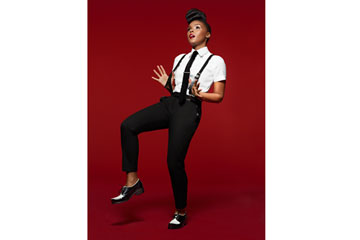
(3 of 3)
"Some of the things she deals with in the future, I deal with right now," Monáe says. "I mean, we will have androids. So I'm looking at how we can correct the mistakes we've made in history by enslaving minorities and oppressing gay culture. Will we look at the android community as something 'less than' just because we don't understand it?"
Monáe's philosophy, sort of a mashup of Oprah and black science-fiction writer Octavia Butler, comes to fruition on The Electric Lady's first single, "Q.U.E.E.N.," a feminist call-to-arms duet with Badu. "We wanted to make it clear," Monáe says, "that two females who are strong can show love and admiration for each other without any underlying jealousy." The result, says Badu, is "two queens coming together to have tea."
"This album," says Monáe, "is Cindi exploring her feelings about love, religion, sexuality." And if its bold fusion of sounds and narrative strategies gives Monáe a reputation too, she's not worried. "We all have to be electric ladies and challenge the belief system of our society," she says. She puts the sunglasses back on and rises. "Besides, human beings don't scare me anymore."
